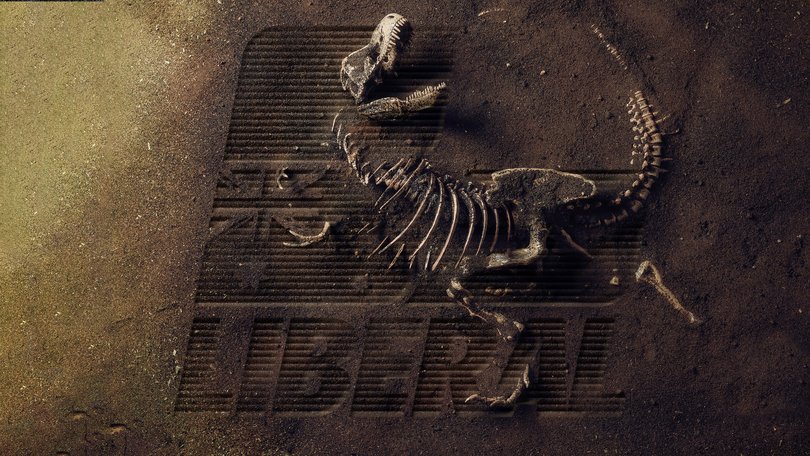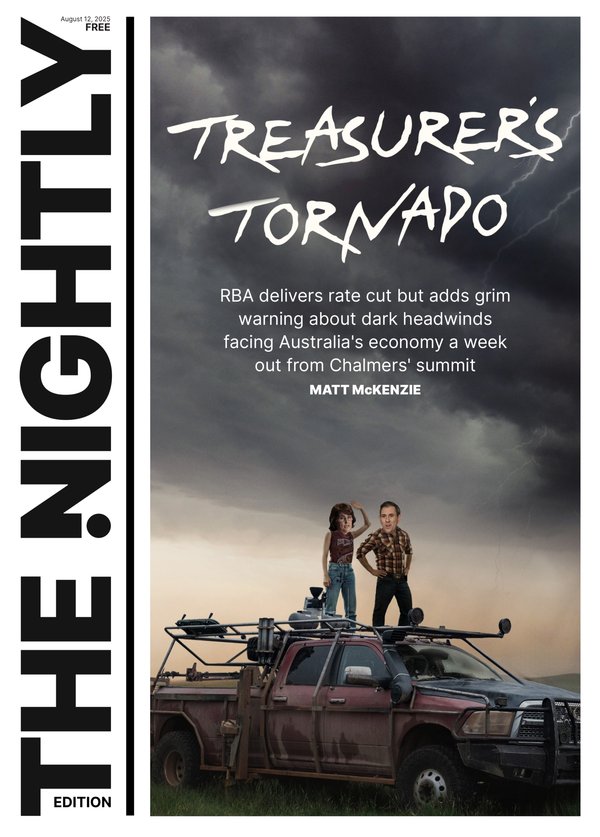PAUL MURRAY: Liberal Party failings have left them hurtling towards potential permanent irrelevance

When people use the term “weeping and wailing and gnashing of teeth” they usually source the quotation to the Old Testament book of Lamentations.
It actually doesn’t appear there in that form. The proper source is the Liberal Party after an election loss.
Sometimes there’s just weeping and wailing. This time there’s definitely teeth-gnashing, too.
Sign up to The Nightly's newsletters.
Get the first look at the digital newspaper, curated daily stories and breaking headlines delivered to your inbox.
By continuing you agree to our Terms and Privacy Policy.And so there should be. The two most recent election losses accumulated by the Liberals in WA were a long time in the making and represent a potentially inexorable slide into irrelevance.
While there might be parallels worth pursuing from that Old Testament story — one of devastating conquest, the judgment of sins and the eventual hope for restoration — it could be counter-productive to explore them.
There’s a danger in going too far down the religion route because that’s another one of the Liberal Party’s problems it doesn’t want to talk about publicly.
Suffice to say, for the godly among the Liberal faithful, the prophet Jeremiah’s message in Lamentations is that all is not necessarily lost. If you believe in something.
The biggest issue, among many, for the Liberals — and one they have studiously avoided for way too long — is working out what they believe in and how to make that relevant to an increasingly disengaged society.
Last weekend, the WA party’s State Council — the broad-based governing body drawn mainly from the branches — voted to appoint former Tasmanian premier Will Hodgman, former WA Liberal leader Liza Harvey and the marketing director of Sydney-based Campaign Digital, James Dore, to review the March 25 election loss.
This is another sign of a moribund organisation drowning in its own mediocrity.
Two people from the parliamentary wing, one from a unique polity with a completely-different voting system to WA’s and the other with no history of electoral success, are thrown together with a digital marketing expert, suggesting that’s where the organisation thinks the problem lies.
The inability of the party elders to look for more searching scrutiny is not surprising. It rubber-stamped the recommendation of the State Executive, down to the terms of reference.
The two lay party reviewers given the job in 2021, prominent barrister Mark Trowell and celebrated party fundraiser and former president Danielle Blain, recommended the State Executive be abolished because it “fulfils no essential role” and was factionally manipulated.
And their report contained the only public glimpse of the 2017 review, noting it was shown “in-camera” to the State Executive, which kept it from State Council.
“As a result, it had no impact in alerting the membership of the party to the seriousness of the situation and spurring on a reform process,” the reviewers wrote.
When one thing obviously isn’t working, it’s a good idea to try something different.
Instead of internalising the party’s problems through the standard review process, why not try reversing it? How about using the elected MPs and what remains of its branch membership to engage their local communities about how political parties could better represent them?
Because the Liberals are not the only party with a flagging primary vote and spiralling branch memberships.
The WA Liberals might even consider a recommendation from the 2022 review of its Federal loss by former director Brian Loughnane and senator Jane Hume, which was also largely ignored: “The party should conduct a pilot of a national conference in a space where members can interact freely with speakers, parliamentarians and leading centre-right policy experts and academics.”
A similar, even broader, approach on a State basis could start with all the issues thrown up by the recent reviews that have been ignored.
The establishment of the new WA review team was recommended to the State Council by the State Executive, which is still dominated by the party’s one functioning faction, previously known as The Clan.
Party sources say the 2021 review recommendation that “State executive should be abolished” wasn’t even discussed at the following State conference.
Trowell and Blain had wryly suggested that if the conference decided that the State Executive “fulfilled some useful role” — a polite way of saying they didn’t — it should be “reduced in size to make it more effective, manageable, and less susceptible to factional manipulation”.
The West Australian reported the outcome on July 30, 2022: “The WA Liberals have taken the ‘first step towards reform’ and smashing the grip of powerbrokers after a proposal to allow every member to have direct input into who represents them at elections received overwhelming support at the party’s State Conference on Saturday.
“The introduction of plebiscite voting for pre-selections was backed by 92 per cent of delegates to the conference, allowing Liberal state president Richard Wilson to claim success in his nearly year-long quest to build consensus for the biggest overhaul of voting rules in the history of the party.”
Under Wilson, the party went through what appeared to be a reform process, but he resigned from the position in October of that year after only 13 months, leading to the election of Caroline Di Russo.
In January 2023, Trowell, having read the review of the May 2022 Federal election loss, wrote in this newspaper that it concluded the grassroots of the party had collapsed amid a failure to reflect local communities.
“It attributes this collapse to the control of factions, rule by personality cults and fiefdoms with little incentive to change because of the fear of the controlling factions losing internal power,” Trowell wrote.
“No surprises there. It’s entirely consistent with the findings of the WA Review Report delivered in August 2021, but which has been largely ignored by the Clan-controlled party.
“Oh sure, there were some concessions made, but mostly administrative window-dressing. The introduction of the ‘plebiscite’, hailed as a major reform, has done nothing to break the hold of the factions.”
Di Russo failed to pick up the ball tossed by Trowell and has presided over two crushing election losses. Her supporters are now playing the gender card in the face of news that defeated Curtin candidate Tom White is considering running for the presidency at next month’s State conference.
A week ago, Wilson wrote an op-ed in this newspaper suggesting another review was unnecessary because the party already knew what was wrong and just needed to fix it. He correctly, but ironically, stated “previous reviews have offered sound recommendations, but too few were acted upon.” Mea culpa?
“We must identify our priority seats and voter segments,” Wilson wrote. “Which voter groups — young families, aspirational migrants, suburban professionals, regional business owners — present the clearest opportunities to grow our support?”
This approach reduces party politics to nothing more than a marketing exercise, the assembly of enough niche interests to win power.
A broad-based political party should be about making society better for everyone, not pandering to segments of it by generating policies as a product in search of a market. Socio-economic data is essential in understanding policy, but should not drive it.
In both State and Federal election campaigns, the Liberals were desperately creating untested policy on the run to fill perceived demographic holes while running away from those it already developed, but had failed to sell convincingly.
That, along with appallingly erroneous polling, is what got them into so much trouble.
For example, the party’s election HQ delayed releasing its defence policy for fears that it inexorably led to a discussion about China which might risk alienating voters with a Chinese background in sensitive seats like Tangney and Bennelong in NSW.
The Loughnane-Hume review had found that the swing against the party in 2022 was significantly greater in electorates with a higher concentration of voters of Chinese ancestry, purportedly due to sensitivities around blame for the origins of the pandemic.
Of the 1.4 million people in Australia who identify as having Chinese ancestry, 536,000 were born in China but only about 36.5 percent of them are eligible to vote as Australian citizens.
The review wanted a concerted outreach campaign to win them over: “There is a particular need for the party’s representatives to be sensitive to the genuine concerns of the Chinese community and to ensure language used cannot be misinterpreted as insensitive.”
But Hume went on national television days before the election talking about “Chinese spies” handing out how-to-vote cards. A Labor video of her gaffe was viewed 500,000 times in 24 hours.
Hume had already been responsible for the biggest snafu of the campaign with comments about working from home — never a road-tested Liberal policy — that derailed Peter Dutton’s offensive for a week and was a gift to Labor.
The Loughnane-Hume review called for the development of policy proposals which were “consistent with the party’s values, are tangible, implementable, and relevant to the current mainstream public debate”.
Until the Liberals do the work to develop such values-based policies and stop their destructive factional self-harm, all the marketing in the world won’t help them.
